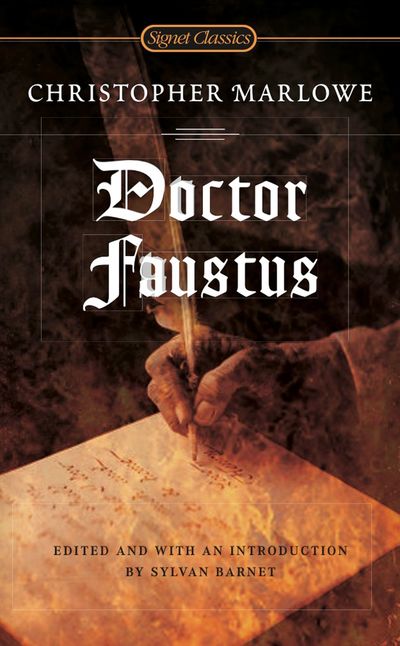
Stock Photo: Cover May Be Different
Doctor Faustus (Signet Classics) Mass market paperbound - 2010
by Marlowe, Christopher
- Used
From the Elizabethan period's second-biggest dramatist comes the story of Faustus, a brilliant scholar who sells his soul to the devil in exchange for limitless knowledge and powerful black magic. Includes new material. Revised reissue.
Description
NZ$7.89
FREE Shipping to USA
Standard delivery: 5 to 9 days
More Shipping Options
Ships from Off The Shelf LLC (Missouri, United States)
Details
- Title Doctor Faustus (Signet Classics)
- Author Marlowe, Christopher
- Binding Mass Market Paperbound
- Edition [ Edition: Revis
- Condition UsedGood
- Pages 272
- Volumes 1
- Language ENG
- Publisher Signet Book, New York, New York, USA
- Date 2010-04-06
- Illustrated Yes
- Features Bibliography, Illustrated, Price on Product - Canadian, Table of Contents
- Bookseller's Inventory # 4WILKM00KCXM
- ISBN 9780451531612 / 0451531612
- Weight 0.3 lbs (0.14 kg)
- Dimensions 6.7 x 4.1 x 0.8 in (17.02 x 10.41 x 2.03 cm)
- Library of Congress subjects Magicians, Germany
- Dewey Decimal Code 822.3
About Off The Shelf LLC Missouri, United States
Biblio member since 2021
Hello! We are a used book seller out of St Louis Missouri.
Summary
The classic Elizabethan play, with new material
From the Elizabethan period's second-biggest dramatist comes the story of Faustus, a brilliant scholar who sells his soul to the devil in exchange for limitless knowledge and powerful black magic.
From the Elizabethan period's second-biggest dramatist comes the story of Faustus, a brilliant scholar who sells his soul to the devil in exchange for limitless knowledge and powerful black magic.
